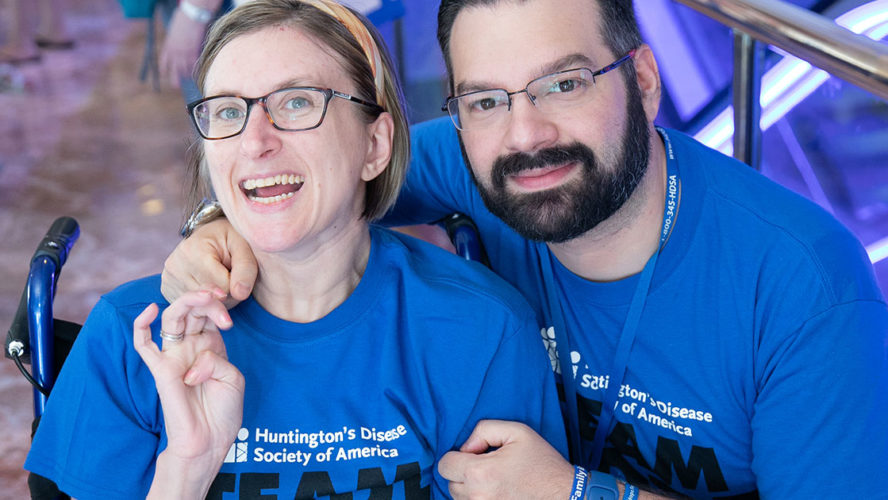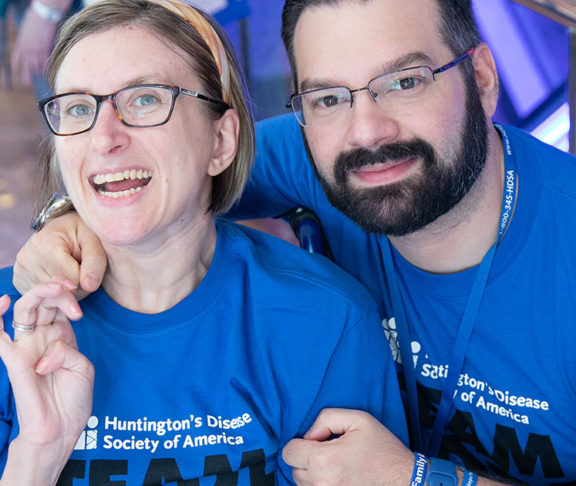Many describe the symptoms of Huntington’s disease as having ALS, Parkinson’s, and Alzheimer’s disease — simultaneously. But there’s more to the story.
Here are five things you need to know about Huntington’s disease:
What is Huntington’s disease?
Huntington’s disease (HD) is a fatal genetic disorder that causes the progressive breakdown of nerve cells in the brain. HD causes deterioration in a person’s physical, mental, and emotional abilities, usually during their prime working years, and it currently has no cure. Most people start developing symptoms during adulthood, but HD can also occur in children and young adults (known as juvenile HD or JHD). Symptoms of HD include: personality changes, mood swings, depression, slowed thinking, impaired judgment, involuntary movements (chorea), unsteady gait, slurred speech, difficulty swallowing, and significant weight loss.
Who is at risk?
HD is caused by a mutation in a gene called Huntington’s gene. Everyone has this gene, but in rare cases a piece of the gene expands, leading to HD symptoms. HD is known as a family disease because every child of a parent with HD has a 50/50 chance of inheriting the expanded gene. Today, there are approximately 41,000 symptomatic Americans and more than 200,000 at risk of inheriting the disease. HD affects all genders, races, and ethnic groups around the world.
Treatments for HD symptoms
There is currently no cure or treatment that can halt, slow, or reverse the progression of HD. However, there are therapies and interventions that can help manage HD symptoms. A neurologist or psychiatrist with expertise in HD may prescribe medications to help with mood symptoms, manage troublesome behaviors, and calm uncontrollable movements. A psychologist or social worker can provide individual or group counseling. Physical and occupational therapists can work with patients and families to develop strength, move safely, and adjust the home environment and activities as needed. Speech language pathologists and nutritionists can help with communication, eating and swallowing safely, and combating weight loss.
Potential HD therapies in the pipeline
While there is currently no cure, there are numerous scientists and companies studying HD, with potential therapies actively moving through the research pipeline. HD researchers are learning more about how HD affects the brain and body, deepening our understanding of disease mechanisms and processes and developing possible new drugs to manage symptoms. Currently, drug trials are underway to develop therapies that can better treat and hopefully one day stop HD.
Where to turn for support
The Huntington’s Disease Society of America (HDSA) has a nationwide network of volunteers and services that provide support for individuals with HD and their families. This includes multidisciplinary care teams at HDSA Centers of Excellence that provide the types of services listed above, as well as social workers, support groups, educational resources, disability services, and youth programming.
To learn more about Huntington’s disease and the work of the Huntington’s Disease Society of America, please visit www.HDSA.org.

